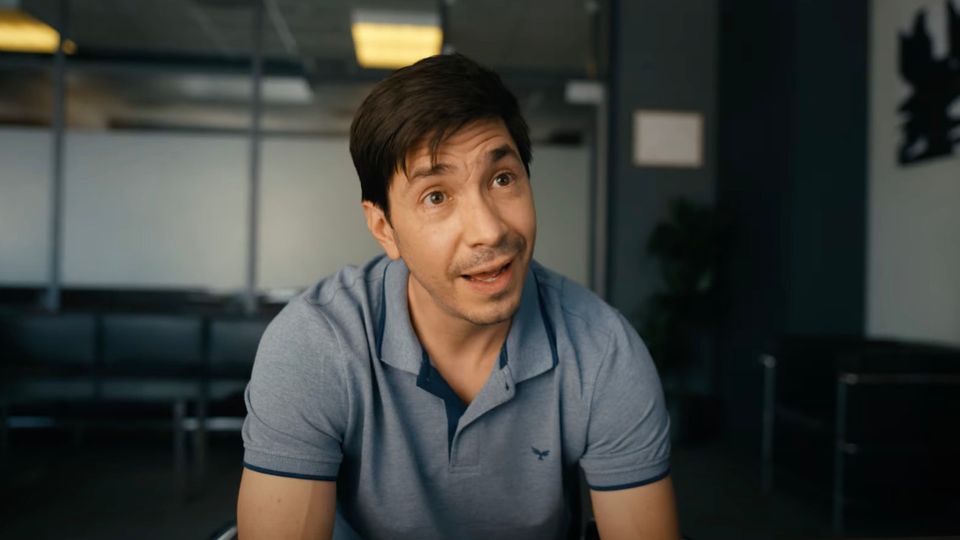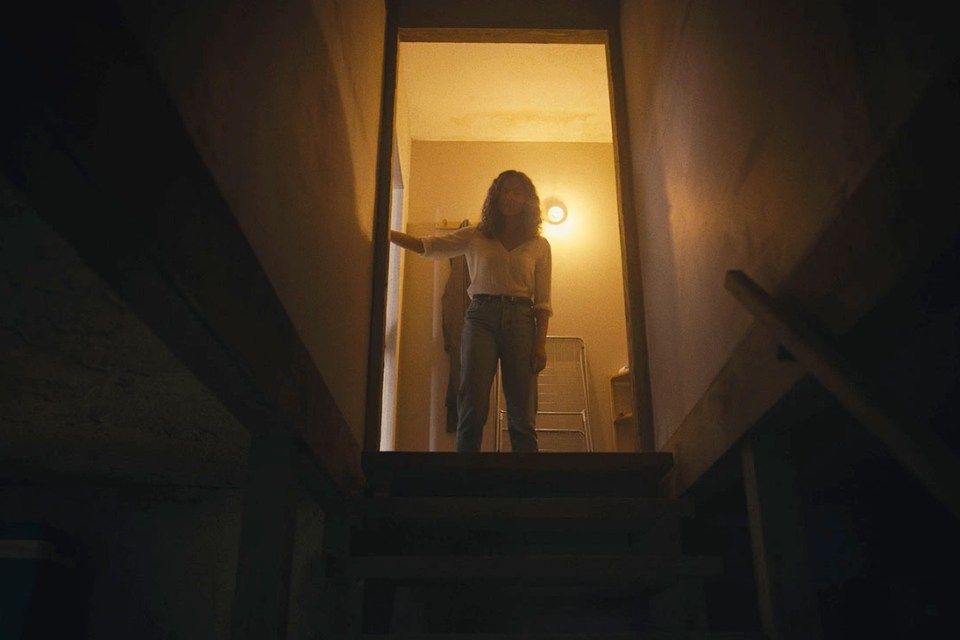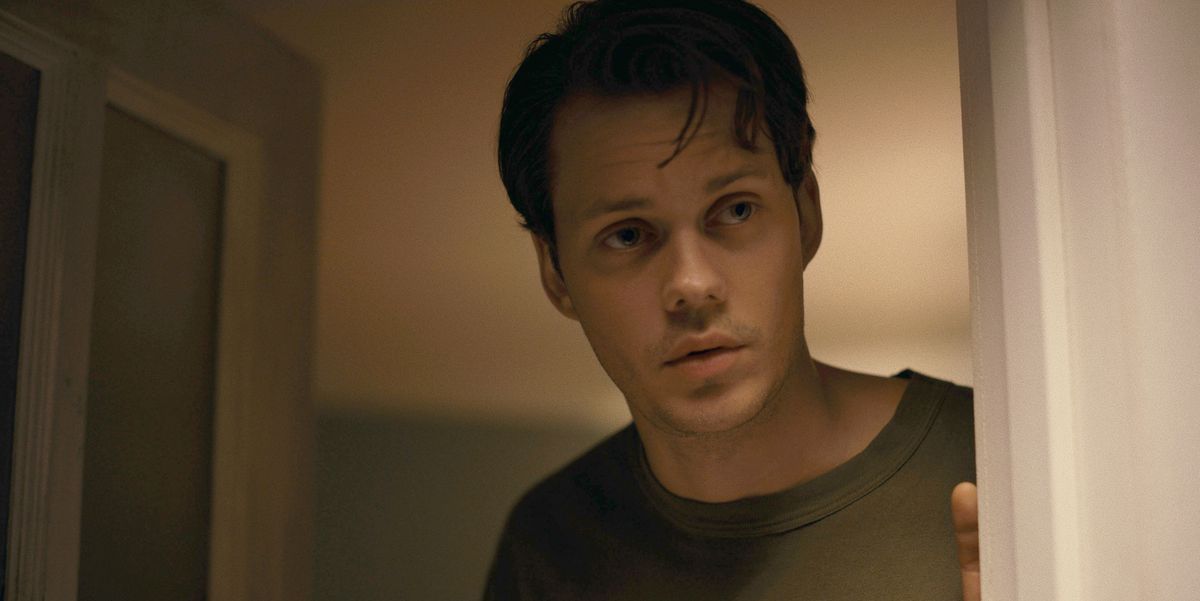I Loved Barbarian!

I saw Barbarian based solely on non-descriptive hype. Never saw a trailer, read a review or even saw a photo. All I knew going in were the names of the three stars. I’m really glad about that and wish you the same ignorance! So please don’t read this review unless you've seen it (already available for rent and on HBO Max!), don’t plan on seeing it, or if you’ve already read the Wikipedia plot because you’re a big chicken. This is the kind of essay that’s far more about why I loved it than an attempt to sell you on checking it out.
First off, how the hell was Barbarian written and directed by Zach Cregger, a guy from The Whitest Kids U Know? One who’s mostly done acting work in sitcoms since co-directing a Playboy-themed comedy named Miss March more than a decade ago? This truly blew my mind when looking up the deets after the movie. In Barbarian, Cregger gracefully shifts from intimate conversations between charming people to “oh hell no” hallway shots. He takes dramatic structural & tonal risks without asking for cool points through glib self-awareness. Huge, unexpected geographical & temporal jump cuts occur without a suggestion of incompetence or cruelty towards the characters or audience. John Boorman was fond of shots that only made sense a minute after they began, but Cregger’s surprises never seem madcap like Boorman's, just assured & inspired. Zach Cregger…the goofball from some one season NBC sitcoms a decade ago and the lead on the TBS comedy Wrecked. I just positively compared a horror movie he directed to John Boorman. What the hell?
Even wilder? I’d like to see Justin Long get an Oscar nomination. There may be some classier and more obscure examples worth celebrating, but I’ve never seen a better portrayal of covert narcissism on screen than Long gives as freshly MeToo’d actor AJ Gilbride. We’ve seen plenty of sociopathic antiheroism in film and TV, courtesy of ingenious characters whose indifference to morality & nicety allows them to play chess with other people’s lives. But Gilbride, while just as potentially dangerous and explosive, isn’t inherently destructive, grandiose or desperate for attention. He’s a charming, whimsical presence with sincerely valued, lifelong friends (and I hope that "dude, be honest with me" bar scene with his bro will haunt people). It’s only when you endanger his ego that you discover how quickly he’ll turn contemptuous and manipulative.

A common hurdle when seeking justice is how our language centers the intent of those who wrong us. We tend to think of predators & abusers purely as varying degrees of Hannibal Lecter, consciously enjoying the controlling games they play and the hurt they cause. The term "gaslight" comes from a play about a wife being made to feel insane so her husband can steal her money. But the violence of a covert narcissist, while just as real and horrifying to experience, comes out of insecurity & panic rather than a conscious denial of our humanity. Gilbride truly doesn’t see himself as a rapist, because his priority was not experiencing rejection rather than hurting his victim (this type of narcissistic wound is often associated with past emotional trauma, and it’s implied Gilbride's father is, at the very least, extremely emotionally withholding). I think Gilbride was completely genuine when he tearfully wrestled with being a “bad person” near the end, but that didn’t keep him from throwing Georgina Campbell’s Tess Marshall off the tower to escape “The Mother,” or telling Marshall afterwards that she simply slipped. His self-interest takes priority over all other values, and narratives must be created to spare himself & others from realizing how craven he can be. It's his desperation to protect himself that separates him from the evil manipulators and ignorant hate-mongers that Hollywood typically warns us of, one reason why judges and juries let off victimizers who aren't transparently evil or ignorant. They can convince people they made a sympathetic mistake, because they have to convince themselves.
This complicated, confused sincerity is how Gilbride can be so disgusted by the aging, decrepit serial killer while oblivious to the trappings of a serial killer’s lair minutes earlier. When he’s consumed by financial ruin and ecstatic to discover extra real estate in his basement, a bloody mattress is just something to regret sitting on. Long does an amazing job of eschewing any ominous glowering and intensity, conveying only defensiveness and panic when cornered. It honestly feels brave for an actor as amiable as Long - Amanda Seyfried said she slipped into his DMs before they dated and he's doing a damn Goosebumps series for Disney Plus next year - to play someone so toxic, pathetic and emotionally immature, without the safety hatch of playing an obviously sinister presence pretending to be a nice guy.
Though the climax makes clear that the film’s "monster" is more sympathetic than Gilbride, I don’t want to make Barbarian sound like a Freudian character study rather than a fun horror movie. The film’s utilization of gender dynamics, class & psychology only serves to heighten an unpredictable, spooky-ass thrill ride. But it was refreshing to see a movie explicate the fragility and the cruelty of someone like Gilbride, and inspired for Cregger to use him as a chaotic neutral in the context of a more gothic horror story. By not having Gilbride turn into a cartoon terror the lead has to exterminate - think Denzel Washington at the end of Training Day - his pathology remains something for the audience to wrestle with.

A little web searching has confirmed my suspicion that some analyses will center primarily on gender, which is certainly a pointed context in the film - particularly during the opening sequence with Campbell (a great horror lead, resourceful but not superhuman) and Bill Skarsgard (doing a fantastic job of utilizing our awareness that dude was Pennywise without being at the mercy of that credit). We don't get to learn just how egotistical or overconfident Skarsgard's Keith is, but his presence helps distinguish between cliche male hubris and the darker, more dangerous perspective of Long's Gilbride. Though that distinction is often academic in terms of Tess Marshall's predicament.
White fragility and male fragility may be its most well known forms of expression (at least with younger generations), but covert narcissism can arise in any context where the injured ego has the power and freedom to indulge itself - corporate, familial, financial. It's an emotional wound that transcends Hollywood's traditional concepts of heroism and villainy, calling into question our valorization of "self-defense." Part of the genius of Barbarian - and Long's performance - is how it makes the pathology and the threat explicit without losing the nuance for drama's sake. But then it had drama to burn even before Long showed up on screen, singing along to my favorite obscure Donovan single. Rude, Cregger. Rude.